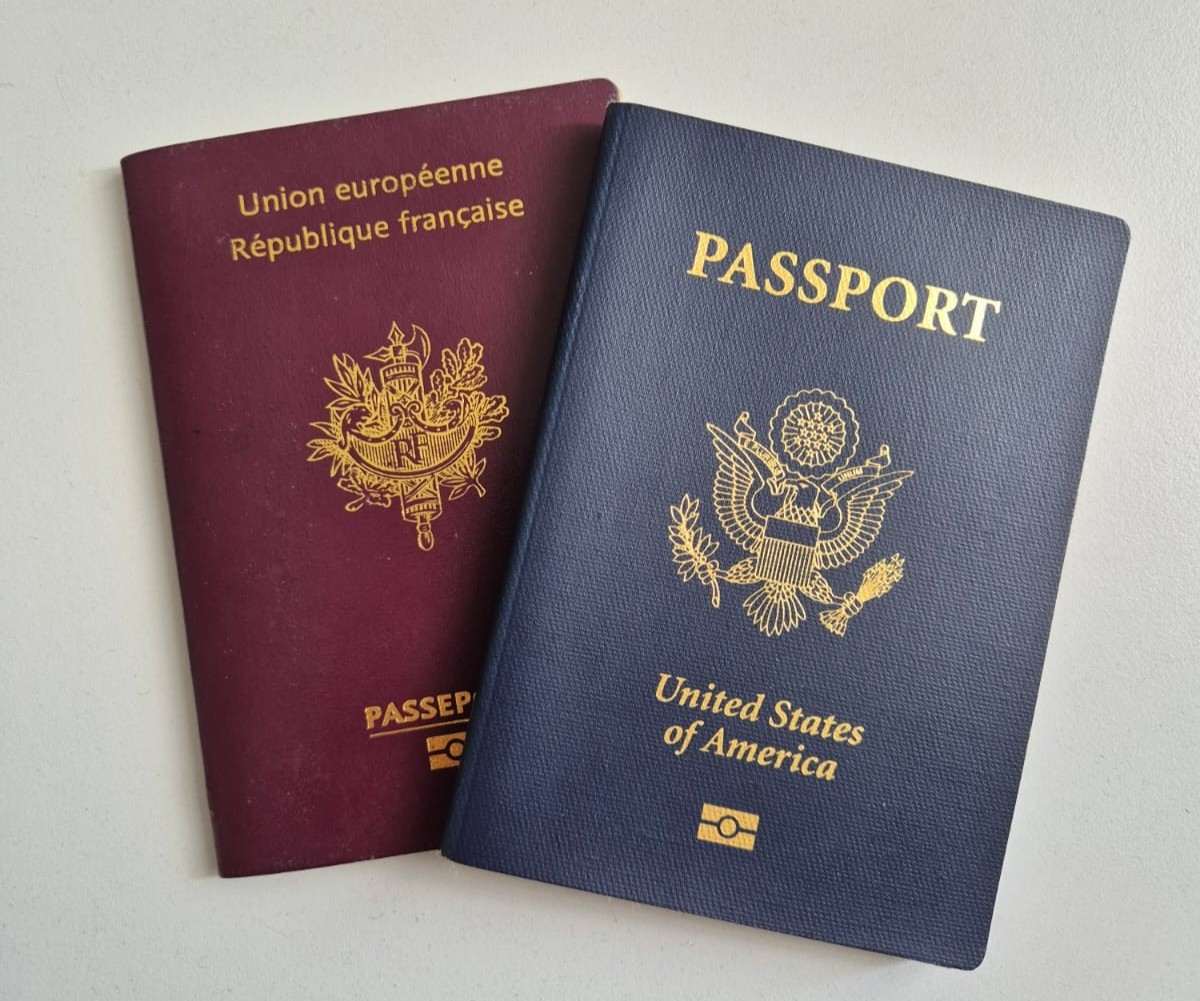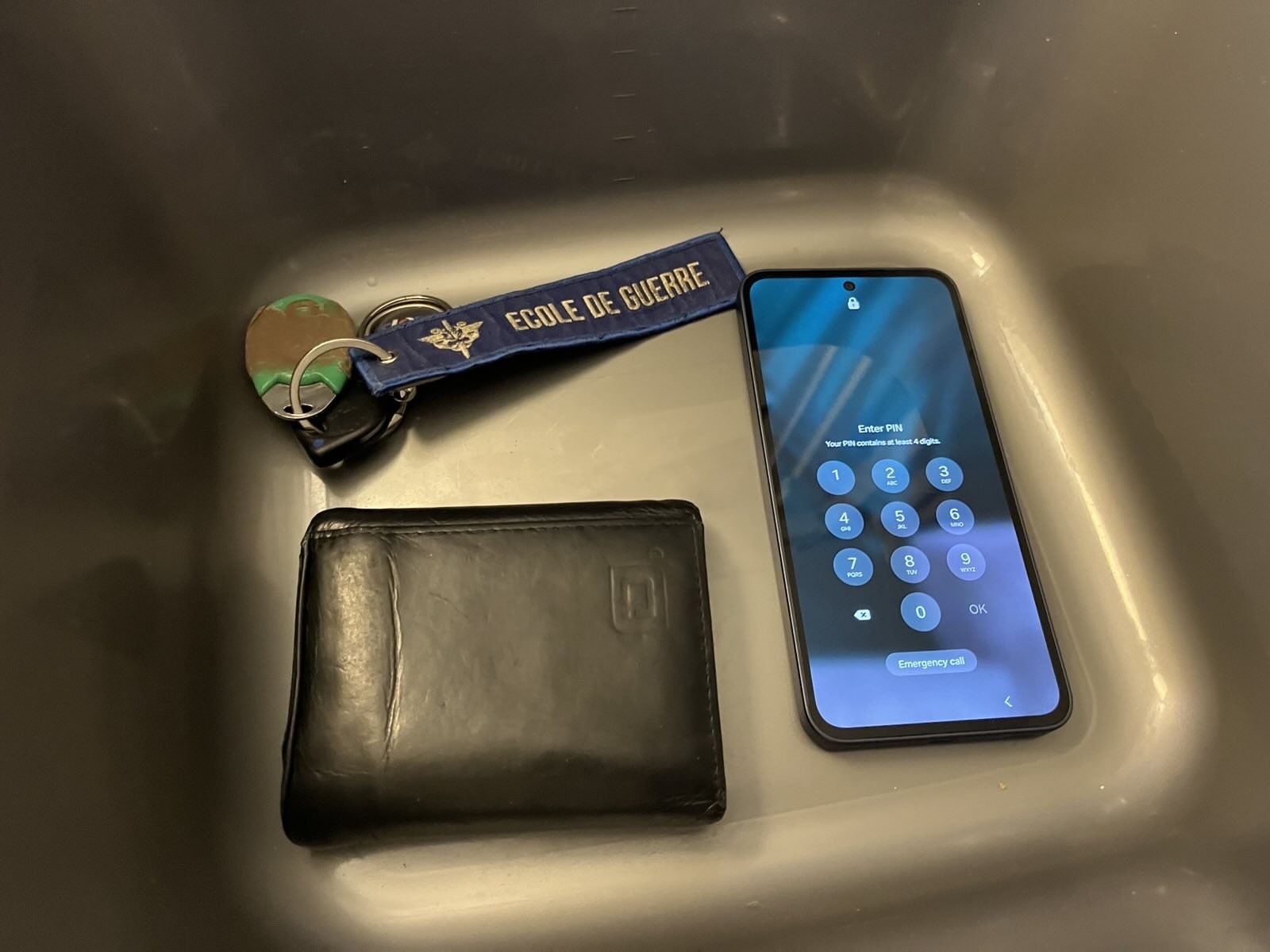How AUP Students Can Travel to the U.S. Safely

Students and recent alumni from AUP have said that traveling to the U.S. is a more intimidating experience than it was before President Donald Trump’s second inauguration.
AUP senior Liam Kuhns said they plan to travel to the U.S. over the summer with their family, but worry about what travel will be like. “It’s hard seeing a country that has a whole mythos of being the free world yet I, as an American, feel like it’s still dangerous for me to come into my own country,” said Kuhns. “I’m going with my dad and he renounced his U.S. citizenship ten years ago—I know that might be touchy and I don’t want him getting arrested obviously.”
AUP alumni Caroline Sjerven went to the U.S. with her girlfriend, who is a current M.A. student at AUP, in March, and said she was “pretty worried” about the border entry process. “I changed our lockscreen from a photo of us together to one of my nephew as a precaution against prejudice if we got stopped,” Sjerven said.
Sjerven also said she noticed fewer people in the non-U.S. citizen line at passport control at the Baltimore/Washington International airport in Maryland. U.S. government data reports an 11.6% year-over-year drop in travel into the U.S. in March, and a more than 17% decline in travelers from Western Europe.
In the first three months of Trump’s second term, some young people coming from Europe have experienced hassles at the border including long detentions in Immigration and Customs Enforcement (ICE) facilities, deportations and long-term bans from returning to the U.S.
In February, a German tourist reentering the U.S. with his American fiancée was detained for two weeks before being deported over what his fiancée said was a language misunderstanding. Later that month a backpacker from the U.K. was detained for ten days before being classified as an illegal alien and deported because she was doing household chores in exchange for short term stays with people. In March, a French researcher was denied entry to the U.S. and sent back to France, with French Minister of Research Philippe Baptiste saying the decision to refuse entry was based on the researcher’s critical comments about Trump. Others have similar stories.

So what should AUP students traveling from France to the U.S. do to avoid friction at the border?
AUP President Sonya Stephens said that while the university does not have specific guidance at this time, the administration is “paying attention to risks to the university and its members.” She recommended that students follow guidance issued by their countries of citizenship, and that the administration “will provide updates should the situation change and should we feel there is reason to be concerned.”
President Stephens also spoke to concerns of academic independence that leadership at colleges and universities in the U.S. have described as “endangering higher education in America.”
“We remain committed to all students, faculty and staff and their success, and to the principles of academic freedom,” Stephens said, adding that AUP has not “received any direct expressions of concern from the U.S. government,” and continues to work with relevant U.S. government agencies to stay informed on policy changes being made.
When it comes to entering the U.S. safely, the American Civil Liberties Union (ACLU) says that advice differs depending on the status of the person going through the border.
For Americans and Green Card Holders
American citizens and lawful permanent residents (LPRs, AKA green card holders) have the right to enter the U.S. legally, but may be temporarily detained for longer questioning or to search belongings for contraband, even without probable cause. This can include cell phones and laptops. Customs and Border Protection (CBP) officers are required to collect information regarding travelers’ identity and citizenship status, but could also ask questions about the nature and purpose of travel.
Refusing to answer questions beyond identity and citizenship status or refusing to give passwords for electronic devices may result in delays or temporary seizure of the devices in question, but can’t result in refusal of entry into the country.
In a guide for data privacy when traveling to the U.S., WIRED recommends turning off biometric locks such as face ID or thumbprint readers, and using a strong PIN of more than four characters. Turning off access to things like voice controls or visibility of text messages unless signed in is another important way to protect the information in a device. WIRED also recommends ensuring devices are on the most recent versions of their security updates, since even being slightly out-of-date can leave them vulnerable to being cracked by tools meant to exploit older versions of software.

For Non-Americans
Non-Americans entering the U.S. with tourist or short-term visas can legally be denied entry for refusing to answer questions. In practice, this can include refusing to answer questions that CBP officers are not supposed to ask because of free speech protection, such as about religious background or political beliefs. If intrusive questions are asked by a CBP officer, you can make a complaint and ask to see a supervisor.
CBP officers can request passwords to laptops or phones, and can deny entry into the U.S. if they are not given. When unlocked, customs can perform a basic search on the spot, or can download a copy of the information on the device. For this reason, experts recommend limiting the amount of data you carry with you when going through the border. This can include using a burner phone instead of your main cell phone that is not connected to sensitive accounts or does not include full contact lists, or backing up data elsewhere and logging out of apps and cloud services.
Non-Americans are not universally entitled to an attorney during inspections. Because of the possibility of being detained for longer periods, the ACLU recommends getting the contact information of an immigration attorney and keeping that information on hard copy in case your devices are taken. If you expect to experience extra hassle at the border, it may be valuable to notify the immigration attorney in advance that you are going through customs, and then to notify them again once you have gone through, that way in the event of a longer term detention there is someone outside advocating for you.
Non-Americans, including green card holders, should also know about the “100 mile rule,” which gives CBP officers the authority to conduct certain kinds of stops within 100 miles of a U.S. coastline. While technically everyone has the right to remain silent and not answer questions without an attorney present, the ACLU says to show immigration documents to minimize risk of arrest. Unlike at border checks, though, CBP officers are not allowed to conduct searches of your vehicle or belongings without some kind of probable cause. When in doubt, it’s best to avoid answering any questions not related to visa or immigration status.
For Everyone
Regardless of your status, lawyers recommend getting a receipt for anything seized at the border if you don’t get it back before entering the U.S. In general, the best way to ensure smooth entry into the country is politeness and honesty, since a lot of the discretion about searches is in the hands of individual CBP officers.





